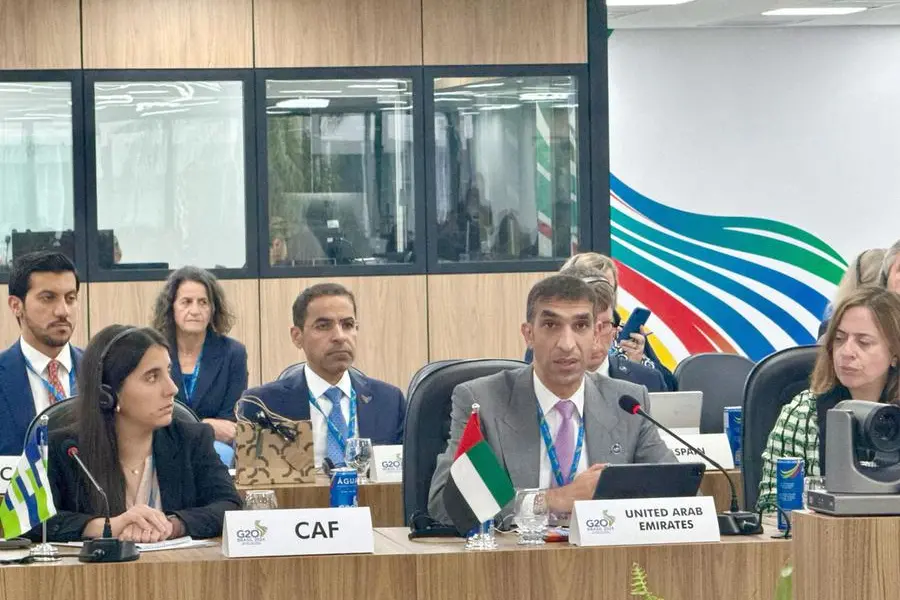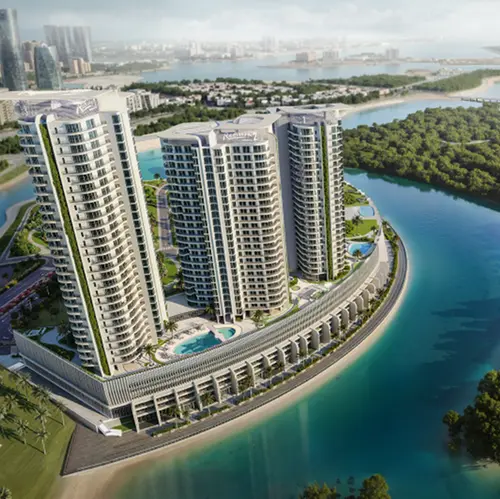PHOTO
Dr. Thani bin Ahmed Al Zeyoudi, UAE Minister of State for Foreign Trade, reasserted the UAE’s commitment to open, rules-based trade during the G20 Trade and Investment Ministerial Meeting (TIMM) in Brazil, and again made the case that WTO reform can advance the cause of multilateralism and ensure equitable access for all nations to global supply chains. The UAE was participating as an invited guest of Brazil during its G20 Presidency, reflecting the UAE’s growing influence on the global economy, particularly on trade issues.
During the meeting, which will shape the outcomes of the G20 Leaders’ Summit in November 2024, Al Zeyoudi addressed two key sessions regarding the global trading system: the first on WTO reform and the need to strengthen the multilateral trading system; the second on trade’s role in sustainable development and investment. The UAE delegation included Juma Al Kait, Assistant Undersecretary for International Trade Affairs at the Ministry of Economy, who led the UAE’s participation in the fourth and final G20 Trade and Investment Working Group meeting, and Saleh Ahmad AlSuwaidi, Ambassador of the United Arab Emirates to Brazil.
In his ministerial interventions, Al Zeyoudi stated that the decisions taken during the 13th Ministerial Conference of the World Trade Organization (MC13) in February 2024, which culminated in the Abu Dhabi Declaration, represented an important step forward in key areas such as dispute resolution and must now be implemented. He called on the G20 to reaffirm its commitment to open, rules-based trade as a driver of growth and prosperity and to push back against protectionism, which will not only stifle global growth but hinder progress towards achieving the United Nations’ Sustainable Development Goals.
Al Zeyoudi also encouraged G20 members to leverage technology to promote greener, more efficient trade practices, which can make an important contribution to the challenges of both climate change and supply-chain disruption. He welcomed the publication of the “G20 Compendium of Best Practices to Increase Women’s Participation in International Trade,” noting that women-run SMEs are central to the economies of emerging markets and need equitable access to international markets.
Al Zeyoudi said the Ministerial Meeting was an opportunity for the UAE to advocate for trade as a vital bridge between nations and a driver of productivity and innovation, “The G20 Trade and Investment Ministerial Meeting is an important platform for addressing the issues impacting global trade, and for shaping the solutions that will ensure every nation is able to access and benefit from supply chains. The UAE will continue to use such meetings to champion multilateralism and align with our partners across the world to ensure trade remains able to deliver long-term, sustainable growth for every nation. We all agree on the need for key reforms to the WTO and strengthening issues such as dispute resolution. What we need now is a coordinated action plan to turn proclamations into policies and programs at regional and international levels.”
During his visit to Brasilia, he held a bilateral meeting with Gan Kim Yong, Deputy Prime Minister and Minister for Trade and Industry for Singapore, in addition to a number of nations who are part of the UAE’s Comprehensive Economic Partnership Agreement program. These included talks with Todd McClay, Minister of Trade for New Zealand, Inkyo Cheong, Minister of Trade for the Republic of South Korea, Shri Jitin Prasada, Honorable Minister of State, Commerce and Industry of India, George Mina, Deputy Secretary in the Department of Foreign Affairs and Trade for Australia.
He also met Márcio Elias Rosa, Deputy Minister of the Ministry of Development, Industry, Commerce and Services of Brazil, and other G20 member blocs, including Valdis Dombrovskis, Executive Vice-President and Trade Commissioner for the EU, and several of its member nations, including Diana Elena Mondino, Minister of Foreign Affairs, International Trade and Worship for Argentina; Jonathan Reynolds, Secretary of State for Business and Trade for the United Kingdom; Helene Budliger, State Secretariat for Economic Affairs (SECO) for Switzerland; and Wang Shouwen, China International Trade Representative and Vice Minister of Commerce.
The G20 membership collectively accounts for 85 percent of global GDP and 75 percent of international trade. In 2023, non-oil trade between the UAE and G20 members surpassed US$393.2 billion, a 54 percent increase compared to 2019, further underscoring the UAE’s growing role as a global trade hub and key partner for economic collaboration.




















